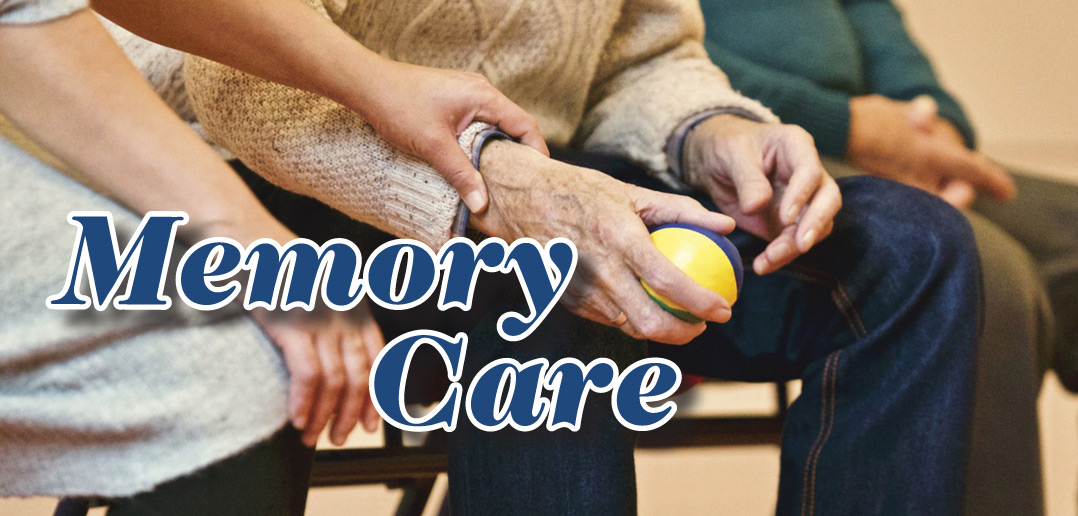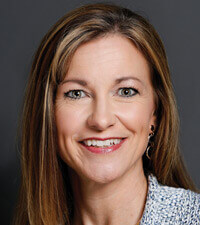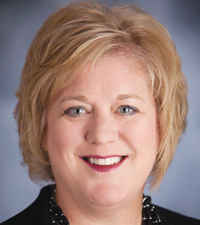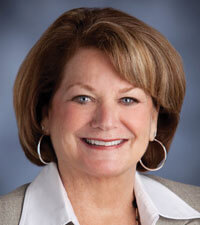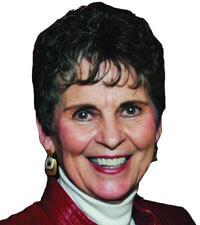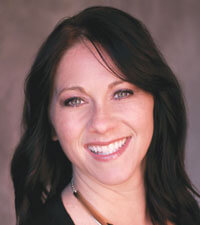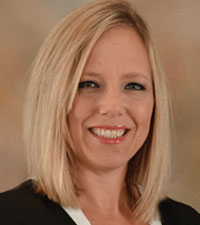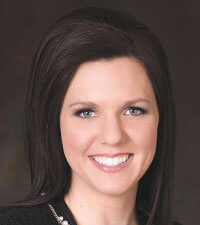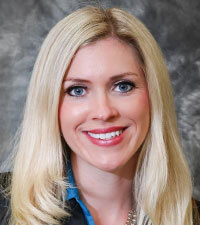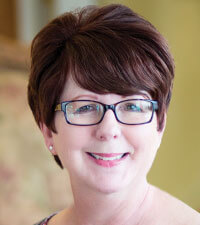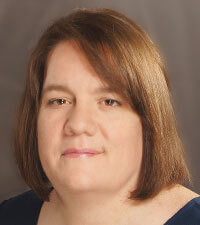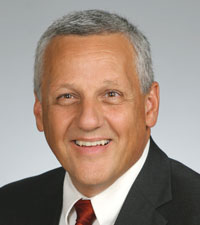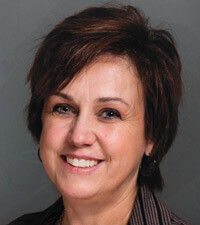Memory Care in Lincoln, NE – 2017
November is National Alzheimer’s Disease Awareness Month, during which time we are called upon to learn more about this condition that has and will impact so many, and to support the individuals living with the disease and their caregivers.
Thanks to the efforts made by so many here in Lincoln and beyond to support campaigns that raise awareness and funds to further research, we are collectively working towards gaining a better understanding of Alzheimer’s disease, and thus, towards finding a cure. Although there are still challenges ahead to be overcome in order to reach that goal, there has been marked progress. During which time, there have been many developments made with respect to specialized care and support services for individuals with Alzheimer’s and dementia.
In observance, this month’s Memory Care feature story offers a compilation of information provided our local professionals who have extensive experience working in the field. We encourage you to educate yourself on the topic, as well as familiarizing yourself with the wide variety of resources found here in our community. We are privileged to live in a place where there are a wealth of excellent resources available for those with Alzheimer’s disease and dementia, their caregivers, and their families.
“Lincoln is fortunate to have many communities with memory support that provide outstanding care; not only for the individual suffering from memory loss, but for the family as well,” says Beth Friesen with Oasis Senior Advisors. “However, be aware that not all memory support communities are the same. It is important to understand how they differ and having an expert there to help guide you through this process is critical.
Many times the individual suffering from Alzheimer’s or other forms of dementia will reach a point when they are no longer safe to be in their current living arrangement. However, I’d advise connecting with us long before that. I’m not only the owner of the Oasis Senior Advisors Lincoln franchise, but a registered nurse who has traveled the journey through Alzheimer’s with my own mother. In addition, Tanya Godwin, our outreach coordinator, has an extensive background in elder law and can help guide families in that arena. When I was going through this with my mom, I so often felt alone. I didn’t know where to turn for support, education, and guidance. Our team at Oasis Senior Advisors is always here to listen, to recommend strategies, books or even online learning to help you help your loved one suffering from Alzheimer’s or other forms of dementia. When the time does come to move to a community with memory support, Oasis Senior Advisors will help you identify the communities that best meet your medical, social, geographical and financial needs. This will help you focus and streamline your search, saving you valuable time and reducing stress.
She also addresses assistance for caregivers, advising, “Caregiver stress is an enormous issue and often the caregiver can become ill and even pass away before the person with the disease. My dad was my mother’s primary caregiver, so this was also an area in which I focused on educating myself. Caregivers need care for themselves too! They need breaks, social interaction, exercise and stress relief. Again, involving Oasis Senior Advisors early in the disease can help you navigate this part of the journey as well. We can help you look at your current situation and determine if day services or in-home caregivers would be beneficial, or even help to arrange a respite stay for the affected person so that the caregiver can get away for a much-needed break or even a ‘stay-cation.’ Furthermore, the newly-formed Caregiver Advocacy Network can be found on Facebook. It provides many resources and a forum where questions can be asked and experts are standing by to help. I would encourage everyone reading this to look it up and like the page.”
She concludes, “Understandably, but far too often, when there is a diagnosis of Alzheimer’s or another form of dementia, families tend to ‘put their head in the sand’ and try to pretend that this isn’t really happening to them or their loved ones. However, that is the ideal time to contact Oasis Senior Advisors and start the discussion. When my mother was diagnosed, it was too late to have these discussions. It left us guessing what she would have wanted. Oasis Senior Advisors is a completely FREE service for people and their families when facing Alzheimer’s or other forms of dementia. Call today to learn more or visit our website. We can be reached at (402) 429-8891 or on the web at Lincoln.OasisSeniorAdvisors.com.”
In agreement, Amy Fish with Lancaster Rehabilitation Center further emphasizes, “It’s important for everyone to look ahead and plan for the future. Moreover, with the vast and varied resources available to assist with dementia and Alzheimer’s care, it is important to access the most appropriate services at the most appropriate time, while anticipating future needs. I’d encourage everyone affected by dementia and Alzheimer’s disease to seek support, and accept the support services available and/or offered.
At Lancaster Rehabilitation Center we offer short- and long-stay care in our memory support neighborhood specially designed for those with dementia or other related memory loss. It is safe and secure, yet also allowing for fresh air in our spacious outdoor courtyards and gardens, and a variety of daily activities. It is important to continually explore options that engage an individual’s body, mind, and spirit, so we offer flexible activity enrichment programs designed to meet the cultural, recreational, educational and social interests of our residents. We have a passionate group of team members who are truly devoted to caring for each individual, along with providing the safety and security expected. The assistance that the team at Lancaster Rehabilitation Center provides allows for a spouse or adult children to continue to serve in a family member capacity and not as the primary caregiver. We are just as dedicated to helping family members stay healthy and involved in their loved one’s lives. Stop by to tour Lancaster Rehabilitation whenever you wish. We’re anxious to show off all that’s new on our campus!”
There is also a brand new community in Lincoln, The Woodlands at Hillcrest, which is set to open soon and will offer memory care as well as assisted living. “The Woodlands will have a dedicated neighborhood for our dementia/Alzheimer’s residents with specialized activities and programming for them,” says Barb Tyler with The Woodlands at Hillcrest. “It will have a secure courtyard to enjoy, a comfortable dining area where they can enjoy meals, and a specialized staff who understands the needs of those with dementia-related illnesses. Our Heartfelt Connections and Life Bio programs will help both staff and the individual families communicate with the resident as the disease progresses. Caregivers can reduce their own stress by using respite care and day services, which The Woodlands will be offering too. The person can stay overnight or for a week while the caregiver takes care of their own business.”
For those who are evaluating their options, Tyler offers the following advice, “To plan for the future, is it helpful to talk your loved one to understand his/her wishes, and to learn as much as you can about their type of dementia (there are many!) so you will know how to help and understand what changes to expect as the disease progresses. Then, always check out any community that is being considered whether for permanent residency or temporary respite or day services. Drop in unexpectedly to the community to see what the residents are doing. Are they happy? Is the activity that they are participating in stimulating? Are they looking their best? Is the staff responsive? In-home health care is also a possibility, but just like the others, check for references so you can be assured of the best care.
Furthermore, I can’t stress enough the importance of utilizing respite and day care services when stress is becoming overwhelming! The person who goes to respite or to day care sees that they are not alone in their daily struggle with dementia. With respite, the caregiver is better at caring for their loved one, and in turn, that person receives better care. No one can do it all, so asking for help is not a bad thing; don’t let yourself be guilted out of it. Try these services out before an emergency situation so that everyone knows what to expect.”
Mary Ann Stallings with Bridge to Better Living adds, “As others have pointed out, the most important aspect of memory care communities to understand is that they are all different and each is unique in what they offer. We work with all memory communities in Lincoln, Omaha, and surrounding areas. Knowing what is offered by each facility enables us to help families, at no charge, find the perfect fit for their loved ones. Our transition consultants have personally been affected by family members with Alzheimer’s and have a connection with those who are presently on this journey. Utilizing our services is important to eliminate stress, time, and the personal emotional impact of finding the right community to meet your loved one’s personality and needs.
Studies have shown that the mortality rate for caregivers is higher than the loved ones affected by dementia. A caregiver needs to take care of themselves physically and emotionally in order to provide quality care for their loved one. Some communities offer respite services and Bridge to Better Living consultants would know these facilities and prices. Another recommendation for respite care would be to apply for free care through an organization called Hilarity for Charity grant program. Applications may be made for free respite care for a considerable amount of time online at www.HilarityforCharity.org.
Bridge to Better Living supports the mission of the American Alzheimer’s Association and is even a co-facilitator in a dementia support group. Loved ones need to become involved in a support group to realize they are not on this journey alone. This provides them an opportunity to connect with others who understand and have been through some of the same struggles.
Alzheimer’s is no longer a family secret and people are becoming more aware, more informed and more willing to discuss it openly. Endless research continues to search for a cure. Dementia does not go away and family members need to have open discussions about the wishes of the member affected and how the different stages may affect the caregiver. At what point will taking care of the affected family member mean moving to a memory assisted living community? Not knowing what the journey is going to be, emotion may dictate decisions instead of what is best for each person impacted unless these issues have been previously discussed. Remember quality of life and safety are two of the most important issues for families affected by dementia or Alzheimer’s.”
While the communities that offer memory support locally do vary with respect to things like amenities, you’ll find that generally the approach to creating an ideal environment, care practices, ongoing staff training, and a focus on engaging activities are quite similar. This is, again, a testament to the caliber of professionals and quality of offerings we are fortunate to have access to here in Lincoln.
“Seniors facing the challenges of Alzheimer’s disease and/or dementia need a safe, nurturing environment,” says Courtney Schmitz with Sumner Place Skilled Nursing & Rehabilitation. “We specialize in individualized programs designed to reduce feelings of confusion, fear, and agitation and offer meaningful, enjoyable activities that stimulate the mind and body. Our services focus on the resident’s wide range of abilities. Sumner Place has a specific Memory Support Neighborhood for those suffering from dementia symptoms; however, memory support is provided throughout the entire facility.
Schmitz also points out, “Since 2013, Sumner Place has utilized the Buddies Forever Program and has dedicated time and education to all who are employed for dementia communication. Team members have gone through extensive and continuous training in learning how to utilize certain communication skills that assist in completing daily tasks with residents who suffer from dementia symptoms. These communication skills are tailored to each individual resident, utilizing personal life experiences, which validate emotion and reality for the resident.”
Christy Merritt with The Waterford Communities also weighs in, stating, “There are a number of communities that offer excellent memory care services right here in Lincoln. The Waterford at Wilderness Hills is a community dedicated exclusively to those with a dementia diagnosis. As a memory care community, we have a team that is constantly receiving training on ways to successfully communicate and connect with residents suffering from dementia.
Most communities offer support groups that are open to anyone who has a loved one with a dementia diagnosis who is seeking advice and information. The Waterford hosts a support group the first Tuesday of every month at 11:00 a.m. at our Williamsburg location, 3940 Pine Lake Road. Many memory care communities also offer respite stays and day services. We are able to offer short-term stays that allow caregivers time to spend with other family members, go on vacation or even allow them to get necessary medical care for themselves. Day services are a great way to introduce your loved one to a community without committing to a permanent move. Our community has flexible times and days available for day services.
It is important to remember that no matter how advanced their dementia becomes, they still are the person you once knew. Honestly, most people remember to get the financial items taken care of, but they forget to really get to know their loved one. Understanding who they really are–some of their fondest memories, their likes and dislikes as well as their beliefs and dominant personality traits—can have a big impact as they progress through the stages of the disease and with their care.”
Then there’s in-home care, which can also be a very valuable resource to utilize. “After an initial diagnosis of Alzheimer’s or a related dementia illness, families struggle with difficult decisions about providing care for their loved one,” states Natalie Leon with Visiting Angels. “Families are faced with additional stresses involved with balancing life and their loved one’s needs. Those who are separated by great distances must make hard choices to provide care. You do have choices. Whether opting for care in the comfort of your loved one’s own home, or providing a seamless transition to a specialized community, we are here to help. Visiting Angels non-medical home care services allow your loved one to maintain the independence of their daily routines and familiar surroundings. Central to our mission is restoring hope by caring for the emotional, spiritual, and physical needs of the client. We can help your loved one avoid the emotional trauma of leaving their cherished home while helping cope with dementia and providing respite care so important for the family. Our caregivers provide compassionate care, understand the client’s abilities and limitations, follow a client-specific customized plan of care, help re-engage the clients in meaningful activities, and use communication strategies to enhance quality of life. Please feel free to contact me directly at (402) 735-0999 or nleon@visitingangels.com to learn more about what we have to offer.”
As previously mentioned, the needs of someone with Alzheimer’s disease and dementia will change over time. Having a plan that takes this into account, and that’s also concurrent with everyone’s best interests, is critical.
“For those with dementia, familiar surroundings are important,” notes Karla Frese with Prairie Ridge by Eastmont. “When living at home is no longer an option, or even before that point, a community that can provide access to continuum care is ideal. This allows the person’s needs to be met, even as they change, while they remain living at the same place. For couples, it’s also advantageous because they can still live together, or very close to one another on the same campus, regardless of the varying degree of their individual needs. At Prairie Ridge by Eastmont, we will have independent living, assisted living, and memory care options available. This allows both individuals to dine together, engage in activities together, and so forth while getting the individual care that they both need. Moreover, we are there to help aging adults and their families manage changes as they arise, whether the onset is gradual or immediate.
People who plan for the future when they’re healthy and capable of making well thought-out decisions are more likely to enjoy long-term satisfaction with their choices. There are so many advantages to making the move to a community well before any type of care is needed. With a long-term plan for your living situation in place, there is far less to worry about for all involved, and you can still enjoy all of the comforts of home.”
Furthermore, since many will be dealing with this type of issue for the first time, seeking advice from the professionals to put a plan together based on what you know now and what you might encounter in the future is advised. “At Legacy Arbors, we help individuals and their families determine the best plan of action when addressing dementia concerns,” says Michele Carlson with Legacy Arbors. “Depending on the situation, there are several different living arrangements that could be considered. Testing done by a doctor to determine the diagnosis and specifics related to it can be very insightful. You’ll have more information to guide your decisions, and oftentimes a doctor can also help provide recommendations for the best type of living and care situation for the individual, whether that’s as simple as in-home care or a memory care community. There are advances made every day, so don’t ever settle for the idea that a dementia diagnosis is a be-all and end-all. Some of the latest advances have been the development of a GPS-enabled shoe for those who wander because of dementia.”
Particularly regarding caregivers but also family and friends, for those seeking support, or who are considering it, she stresses, “You don’t have to go through this journey alone. The Alzheimer’s Association in Lincoln is always a great resource, and there are many support groups led by professionals in the industry that will guide you through the best tips and tricks for caring for a loved one with the disease. Here at Legacy Arbors, we host a support group for families of residents to help educate, share experience and tips. We often see the caregivers giving their entire self to the loved one, which quickly wears on the caregivers themselves. It’s important to seek out some level of assistance so that you can refuel and recharge to help you remain patient, caring and healthy. Also, while many may think of the obvious – to have a plan in place for the individual with memory issues – have a plan in place for you as the caregiver. If something happens to you that you can no longer care for your loved one, who will make those decisions for the individual with dementia? Make sure that whoever takes on your roll then knows the wishes of your loved one.”
Another area related to overall health, but that’s been specifically linked to dementia, is hearing loss. There are several studies that suggest that seniors with hearing loss are more likely to develop dementia than those who retain their hearing. Nebraska Hearing Center is in the business of prevention. “Hearing loss is a slow process and often ignored, that is why it is so important to have your hearing tested annually, like any other checkup,” says Leslie Frank MS, CCC-A with Nebraska Hearing Center. “Research suggests that the strain of decoding sounds over the years may overwhelm the brains of people with hearing loss, leaving them more vulnerable to dementia. Studies also show that hearing loss could lead to dementia by making individuals more socially isolated, which is a known risk factor for dementia and Alzheimer’s. Some warning sign’s to look for are: Constantly asking people to repeat themselves, having the television too loud, ringing in your ears, and problems hearing in noisy situations. Something as simple as hearing aids to improve your hearing could delay or prevent dementia. There is no better time than now to come in and see us at Nebraska Hearing Center for your complimentary hearing evaluation.”
Currently Alzheimer’s disease is the 6th leading cause of death in the U.S. Since it is ultimately fatal and there is currently no cure, end-of-life considerations such as hospice care and funeral planning are things to think about sooner rather than later. “As a provider of end of life care, Hospice Community Care of Nebraska is here for those facing this final journey,” says Lisa Pham with Hospice Community Care of Nebraska. “There are several indicators that may signal it’s time for a person living with dementia to pursue hospice, but every person is different. These include a decline in daily function such as the loss of the ability to dress, bathe, or toilet oneself, repeated falls or infections, and decrease in verbal ability, typically with a person not being able to speak more than six words in the course of a normal conversation. Other conditions contributing to the prognosis will also be considered, for example – the dementia patient who also has heart failure, causing him/her to be short of breath or have swelling of the legs despite medication. The best place to start is the hospice company of your choice to request an evaluation. We can assist in communicating with your physician. Hospice Community Care brings in a skilled, caring and dedicated team of professionals to walk with those receiving our services, providing individualized care and giving our clients true VIP treatment.”
She also notes, “Hospice is not a substitute for the loving care that family members give to their loved ones. We’re there to assist and work alongside them. It is not here to hasten death either, but to allow an individual to choose the path of his/her life for as long as it lasts. Sadly, many wait until the very end to start hospice care – missing out on all that hospice has to offer and allowing them to live life to the fullest through the support of a care team that works closely with them.”
Similarly, Bryan Block with Butherus, Maser & Love Funeral Home offers a personal experience – a cautionary real-life tale ending with a moral of the story – that illustrates how important it really is to plan ahead. “When I think of a family dealing with all that is involved in the care and planning for a family member with Alzheimer’s or suffering with dementia, I always recall a personal story of dear friends in Omaha, a couple who were like second parents to my wife and I. She began having dementia issues and unfortunately it progressed rather rapidly. The three children (scattered across the country) were all so pleased that dad was able to stay home and be the caregiver so they didn’t have to worry about their mother’s care. On the 3rd of July, the children were driving and flying into town for a family gathering over the holiday weekend. The first child arrived at their childhood home and found their mother upstairs, then discovered their father in front of a baseball game in the basement having died of a heart attack. The ensuing days were a nightmare for the children. Mom and Dad had never made any funeral plans; they had never even discussed their preferences with their children. They had to try to schedule everything from the funeral home to the cemetery and church arrangements, all while it was a holiday weekend and many of the people they wanted to contact were unavailable and out of town. Additionally, they couldn’t leave mom alone when they left town after the funeral, so they had to quickly find living accommodations for her. It was truly the worst case scenario for them and each of the children said they would do things so much differently given the opportunity.
Nobody likes to talk about end of life and funeral arrangements. However, even though your thoughts and intentions may be to spare the uncomfortable discussion with the ailing person, one has to consider that he/she may be the survivor. Is that person able to assist in the process if left to make the arrangements? Have this discussion ahead of time. All involved will be so grateful knowing they are following your wishes rather than wondering if they made the right decisions.”
“One mistake we commonly see at Roper & Sons is not planning for your end of life decisions, or assuming that your family is willing and able to take care of your final arrangements,” Jodi Freeman with Roper & Sons Funeral Care reiterates. “Planning early and maintaining your estate plan and/or will, financial affairs, healthcare wishes, and end of life plans are essential. Life is unpredictable – we always tend to think ‘Oh, I have plenty of time,’ until one day, we don’t. It is very difficult to think about our end of life decisions, without a doubt. However, it is even more difficult for families in the midst of the greatest loss. We strongly encourage everyone to make their final wishes known, through pre-planning at a funeral home. Planning truly is one of the best ways you can give your loved ones the gift of peace of mind.
She also offers the following recommendation to consider: “As we age and our lives change, so do our priorities. Plans made in prior years may change for a number of reasons, therefore keeping them up-to-date is key. It is also essential to plan for these things when our mental capacity is strong, because once we begin to decline, both mentally and physically, proper planning can become a challenge. Besides being challenging, questions about mental or physical capacity can draw criticism and concerns about the validity of your plans, potentially leading to arguments and disregard of the plans, and even legal implications.”
There’s much ground we still have to cover to get to the end goal of finding a cure for Alzheimer’s, and we still have much to learn about dementia in general, but where there’s effort there’s progress. Even here locally, there are so many professionals that are dedicated to and passionate about providing the very best care and support services possible while research continues towards eradicating the disease. If you need assistance or simply want to learn more, please do not hesitate to reach out and ask.

